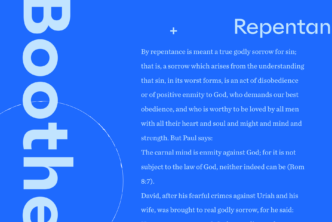By G. K. Chesterton, adapted from Heretics and Orthodoxy
All the towering materialism which dominates the modern mind rests ultimately upon one assumption; a false assumption. It is supposed that if a thing goes on repeating itself it is probably dead; a piece of clockwork.
People feel that if the universe was personal it would vary; if the sun were alive it would dance. This is a fallacy even in relation to known fact.
For the variation in human affairs is generally brought into them, not by life, but by death; by the dying down or breaking off of their strength or desire.
A man varies his movements because of some slight element of failure or fatigue. He gets into an omnibus because he is tired of walking; or he walks because he is tired of sitting still. But if his life and joy were so gigantic that he never tired of going to Islington, he might go to Islington as regularly as the Thames goes to Sheerness. The very speed and ecstasy of his life would have the stillness of death.
Repetition is an overflow of life
The sun rises every morning. I do not rise every morning; but the variation is due not to my activity, but to my inaction. Now, to put the matter in a popular phrase, it might be true that the sun rises regularly because he never gets tired of rising. His routine might be due, not to a lifelessness, but to a rush of life.
The thing I mean can be seen, for instance, in children, when they find some game or joke that they specially enjoy. A child kicks his legs rhythmically through excess, not absence, of life. Because children have abounding vitality, because they are in spirit fierce and free, therefore they want things repeated and unchanged. They always say, “Do it again”; and the grown-up person does it again until he is nearly dead. For grown-up people are not strong enough to exult in monotony.
But perhaps God is strong enough to exult in monotony.
It is possible that God says every morning, “Do it again” to the sun; and every evening, “Do it again” to the moon. It may not be automatic necessity that makes all daisies alike; it may be that God makes every daisy separately, but has never got tired of making them. It may be that He has the eternal appetite of infancy; for we have sinned and grown old, and our Father is younger than we.
Heavenly encores in nature
The repetition in Nature may not be a mere recurrence; it may be a theatrical encore. Heaven may encore the bird who laid an egg. If the human being conceives and brings forth a human child instead of bringing forth a fish, or a bat, or a griffin, the reason may not be that we are fixed in an animal fate without life or purpose. It may be that our little tragedy has touched the gods, that they admire it from their starry galleries, and that at the end of every human drama man is called again and again before the curtain.
Repetition may go on for millions of years, by mere choice, and at any instant, it may stop. Man may stand on the earth generation after generation, and yet each birth be his positively last appearance.
***
Explore more from G. K. Chesterton in the two-volume Heretics and Orthodoxy.
The headings and title of this post are the additions of the editor. The author’s views do not necessarily represent those of Faithlife.






